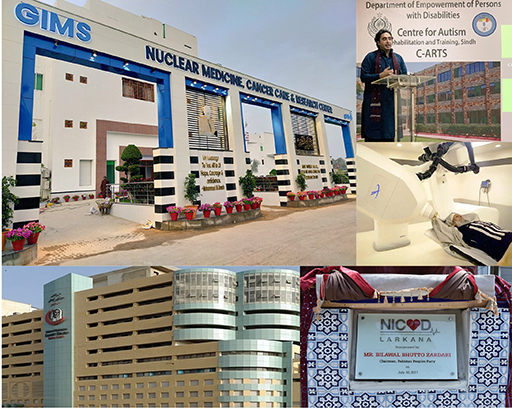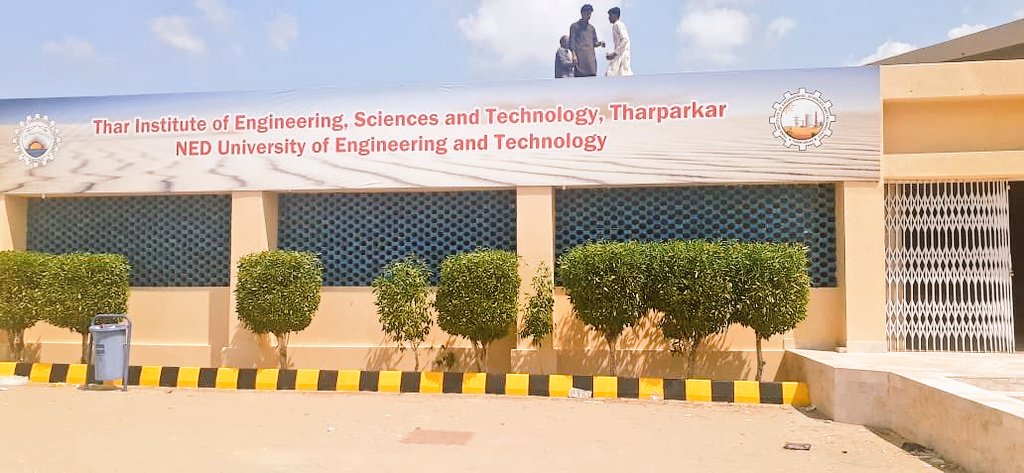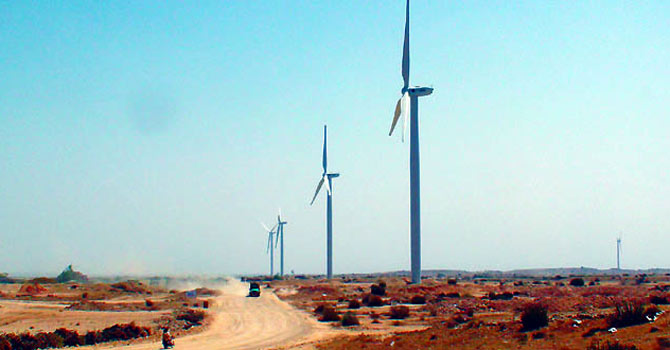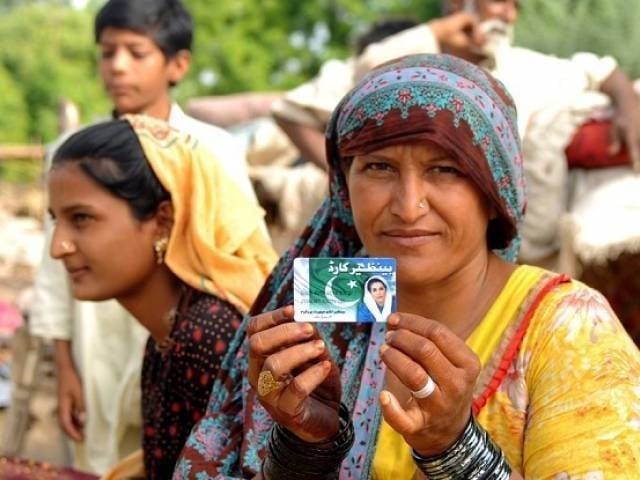I make a conscious effort to avoid engaging in political debates at my workplace, especially considering that many of the educated people belonging to the 80s/90s generation believe the propaganda of the power-hungry establishment. Despite my best efforts to avoid confrontation, when one of my colleagues said “aur Sindh ko tou inhon nay tabah kar k rakh deya hai” in a very mean way, my blood boiled and I couldn't stay silent, I had to speak up against this unfair statement. After the incident, I thought that she is not alone. There are many Pakistanis who believe all the misinformation disseminated to them by those who are afraid of people’s rule. That day I decided to play my part and compile a list of PPP’s Sindh government achievements. So, here I am. Let’s look at each sector one by one.
Health:
 Ensuring easy access to healthcare facilities for the population is one of the foremost responsibilities of the government and the state. The government of Sindh has made significant efforts to ensure easy access to healthcare facilities for its population. The province has established around 500 health institutions that provide free healthcare facilities not only for residents of Sindh but for every Pakistani who wishes to avail of these services.
Ensuring easy access to healthcare facilities for the population is one of the foremost responsibilities of the government and the state. The government of Sindh has made significant efforts to ensure easy access to healthcare facilities for its population. The province has established around 500 health institutions that provide free healthcare facilities not only for residents of Sindh but for every Pakistani who wishes to avail of these services.
Gambat, a remote area in Sindh, is being developed into a health city by the govt of Sindh. It is the only public sector hospital where several high-tech surgeries are being done free of cost. Till the last financial year, 608 Liver Transplants, 135 Kidney transplants, 565 open heart surgeries, 104 Cochlear Implants, and 30 Bone Marrow Transplants have been done free of cost. GIMS has also become Pakistan’s first hospital to provide free Lung transplant services. Apart from that, Pakistan’s first public-sector pharmaceutical industry and a housing facility for patients’ companions are also under construction in Gambat.
Another notable initiative is the National Institute of Cardiovascular Diseases (NICVD) which treats over 2.3 million patients from all over Pakistan every year, providing state-of-the-art cardiac health facilities free of cost. The NICVD has 24 Chest Pain Units and 9 Satellite Centres throughout Sindh.
The first-ever Gamma knife facility in the public health sector of Pakistan, providing free treatment to patients suffering from brain tumours and lesions, was inaugurated at Dow University of Health Sciences, Karachi back in October 2021.
Pakistan’s first CyberKnife Robot at JPMC Karachi was a result of the public-private partnership where Govt of Sindh with the help of the Patients Aid Foundation came together to provide painless, non-invasive and free-of-cost treatment for cancer patients. It is the only medical centre globally that provides CyberKnife treatment free of any charge.
In addition, the government of Sindh has introduced other initiatives in the health sector, such as the Center for Autism Rehabilitation and Training (C-ART) - South Asia's largest public-sector Autism Centre, and the Shaheed Mohtarma Benazir Bhutto (SMBB) Trauma Center - South Asia's first Level 1 trauma centre. The government also operates a 24-hour healthcare helpline called Tele Tabeeb 1123, which provides free medical advice, mental health counselling, and family planning counselling over the phone. Furthermore, the government has implemented an ambulance and mortuary van service called 1122 Ambulance. Just recently, the Sindh government inaugurated the Sindh Institute of Child Health and Neonatology, a 52 Paediatric bedded hospital equipped with paediatric ventilators, staffed with paediatric specialists with 24/7 monitoring in Korangi, Karachi.
The government is currently constructing a 1,350-bed free hospital at Korangi and the world's largest cardiac hospital, Zulfikar Ali Bhutto Institute of Cardiovascular Diseases with 1200 beds at Landhi Karachi.
The fact that CM Sindh himself and the ministers of his cabinet use the services provided by these public sector institutions speaks for the quality of facilities at these institutions.
Education:
The PPP government in Sindh recognizes the importance of education as a basic human right, which is why it was PPP’s government that introduced Article 25-A to the constitution, binding the state to provide free and compulsory education to children aged 5 to 16 years.
The government of Sindh is providing free school education to children across the province. The government is not only operating schools under its School Education and Literacy Department but also providing state-of-the-art infrastructure equipped with modern facilities to SEF (Sindh Education Foundation) under the People’s Schools Program. Sindh also has 5 Cadet Colleges including one specific to Girls.
Moreover, Sindh provides stipends to girl students from Class VI to X in all government schools to enable them to continue their education. The education department has also recently recruited over 50,000 teachers in schools based on tests conducted by the IBA Karachi. Additionally, the Department of Education is using a biometric attendance system for teaching and non-teaching staff, similar to the system being used in Islamabad schools and colleges.
 PPP has not only focused on primary and secondary education but has also performed well in the tertiary education sector. Around 37 different universities and campuses were established during the PPP tenure. These include Medical colleges, Engineering universities and their campuses, Law Colleges, Technical Education institutions, Agriculture university campuses and an Education university among others. Sindh is also the only province in Pakistan that provides scholarships to more than 2000 deserving students for higher education through the Sindh Educational Endowment Fund Trust.
PPP has not only focused on primary and secondary education but has also performed well in the tertiary education sector. Around 37 different universities and campuses were established during the PPP tenure. These include Medical colleges, Engineering universities and their campuses, Law Colleges, Technical Education institutions, Agriculture university campuses and an Education university among others. Sindh is also the only province in Pakistan that provides scholarships to more than 2000 deserving students for higher education through the Sindh Educational Endowment Fund Trust.
Energy:
 Electricity is essential for national growth, progress and prosperity. SMBB in 1995 started the extraction of coal from Thar for the purpose of power generation but successive governments lacked the vision and abandoned the project. The project was restarted by the government of Sindh after the provincial autonomy of the 18th Amendment and later became part of CPEC. The Thar Coal Electricity Integration Project is to date providing 1,650 megawatts of electricity to the national grid which is capable of meeting the electricity demand of more than 4 million households in Pakistan.
Electricity is essential for national growth, progress and prosperity. SMBB in 1995 started the extraction of coal from Thar for the purpose of power generation but successive governments lacked the vision and abandoned the project. The project was restarted by the government of Sindh after the provincial autonomy of the 18th Amendment and later became part of CPEC. The Thar Coal Electricity Integration Project is to date providing 1,650 megawatts of electricity to the national grid which is capable of meeting the electricity demand of more than 4 million households in Pakistan.
In addition to Thar coal, the government of Sindh has also invested in renewable energy sources. Pakistan’s first windmill power project was inaugurated by President Asif Ali Zardari in Thatta back in 2012. Wind power plants operational in Jhimpir (Thatta), Sindh are providing more than 150MW to the national grid. Sindh Solar Energy Project has also initiated a program for the establishment of a 20MW Solar power facility on the rooftops and other available spaces in Public Sector Buildings in Sindh. Pakistan’s first floating solar power project which will produce 500 megawatts of energy, is set to be launched soon on Keenjhar Lake. Investors have shown interest in the development of a 1 GW solar power plant at Thar. President Asif Ali Zardari has just recently announced to provide a Solar Energy system to every household in Sindh.
Infrastructure:
PPP's Sindh government has made significant investments in infrastructure development throughout the province. It has built bridges on the river Indus at six different locations connecting different cities of Sindh. 80% of the road network in Sindh consists of paved roads. Sindh Government has also built an airport in Mithi, Thar. Karachi being the capital of Sindh has been given special attention by the government. It has completed numerous infrastructure projects there which include the construction of two bridges at Korangi, two underpasses and the flyover at Shaheed-e-Millat Road, construction of Malir Expressway, Zia Mohiud din flyover, Clifton flyover among many others. Govt of Sindh is carrying out Karachi Neighborhood Improvement Project which is transforming Karachi into a more productive megacity.
Agriculture:
Being an agricultural country, PPP has always adopted farmer-friendly policies. The construction of 160 small dams has been completed to date by the Irrigation Department of Sindh. These dams provide water for livestock and the cultivation of crops, vegetables and fodder. The lining of main canals for conserving water is considered a lifeline for Sindh’s agriculture. Govt of Sindh has already lined 60% of canals.
Labour:
The Workers Welfare Board under Govt. of Sindh is facilitating the Industrial Workers by providing them with free-of-cost housing facilities and modern education for their children. The board has constructed and distributed 3,000 flats in Karachi, 1,500 in Hyderabad, 500 in Kotri, 200 in Nooriabad and 96 in Larkana. Sindh has also launched Benazir Mazdoor Card Scheme, aimed at enabling workers to avail the benefits related to education, health, marriage grants, financial assistance, scholarships and pensions.
Poverty alleviation:
 The Benazir Income Support Program (BISP) is a flagship program of the government of Pakistan, initiated by the PPP, which provides financial support to impoverished households across the country. In Sindh alone, BISP has supported millions of families, helping them to overcome poverty and improve their livelihoods.
The Benazir Income Support Program (BISP) is a flagship program of the government of Pakistan, initiated by the PPP, which provides financial support to impoverished households across the country. In Sindh alone, BISP has supported millions of families, helping them to overcome poverty and improve their livelihoods.
Under the People’s Poverty Reduction Plan, women are given different grants that range up to Rs 30,000 to purchase livestock and other products. 1.3 million women have benefitted from this scheme and managed to bring their families out of poverty. PPRP is also imparting vocational training to extremely poor community members, especially women. Under this programme, the government has built 20,081 houses for the poor. An independent study showed that 87% of the household that benefitted from PPRP’s Community Investment Fund program believed that their quality of life has become better. The transparency and effectiveness of these programs are evident from the fact that Western donors are contributing to the program.
Transport:
PPP’s Sindh government has started Peoples Bus Service in multiple cities of the province. This service includes electric buses and women-only Pink buses as well.
Despite challenges and criticism, PPP's Sindh government has made significant strides in improving the lives of people in the province and contributing to the overall development of Pakistan. Foreign investors and donors express confidence in the performance of the Sindh government, evident by their trust and investment in the government. The people of Sindh consistently show support for the PPP in elections, with increasing votes in each successive election, indicating their satisfaction with the government. The only group dissatisfied with the PPP's Sindh government appears to be those seeking to prevent the party from gaining a parliamentary majority. If PPP could introduce the 18th Amendment while in a coalition, imagine what it can do if it has a majority in parliament.
It is essential for individuals to educate themselves, look beyond propaganda, and critically evaluate the performance of governments to form informed opinions.


